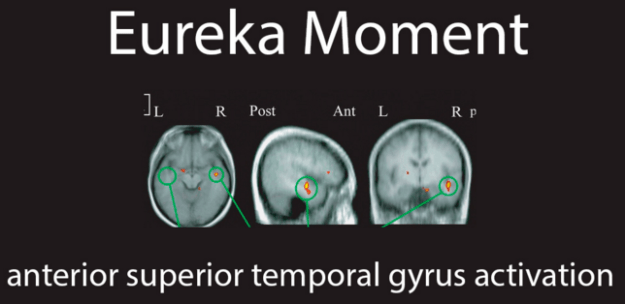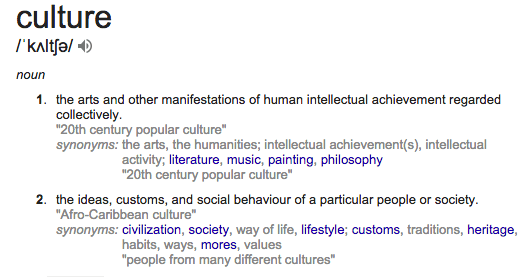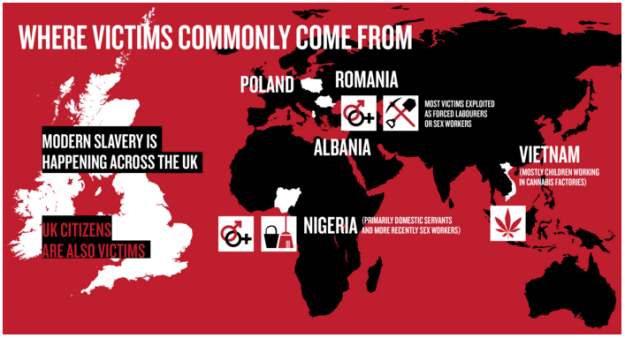(Source: BIFF)
Monthly Archives: December 2015
Welsh government funding for local authorities – unacceptable political bias?
There are 7 local authorities facing cuts of 2% or more. I list them below with the number of Labour councillors in brackets:
- Anglesey (3 out of 30)
- Ceredigion (1 out of 42)
- Conwy (10 out of 59)
- Monmouthshire (12 out of 44)
- Pembrokeshire (8 out of 60)
- Powys (6 out of 73)
- Vale of Glamorgan (21 out of 47)
There are also 7 local authorities in the much more fortunate position of having to deal with cuts of less than 1%:
- Caerphilly (50 out of 73)
- Cardiff (46 out of 75)
- Merthyr Tydfil (25 out of 33)
- Neath Port Talbot (50 out of 64)
- Newport (37 out of 50)
- Rhondda Cynon Taf (60 out if 75)
- Swansea (49 out of 72)
Call me a old cynic, but the pattern here is so striking that I am struggling to suppress words like ‘disgraceful’ and ‘corrupt’.
I am sure there must be a perfectly rational explanation. I’ll let you all know if I ever find out what it is!
Smelling RATs and questioning everything


Royalty-free cartoon from sangrea.net
I have always enjoyed a good idiom, loving the stories behind them. However, there seems no certainty as to where this phrase originated, but if you have ever smelt a dead rat in a wall, you will know that the odour is horrible, indicating that something is definitely not right. The term probably comes from the days when rats were a more common problem, and when prize terriers were used to sniff them out and kill them.
In my own mind, I have turned the ‘RAT’ into an acronym that highlights the three main reasons for suspecting that purported knowledge may be, at least, suspect.
- R = Revelation – it came to me in visions/dreams/voices
- A = Authority – because they (parents/priests/teachers/governments etc.) know better than you
- T = Tradition – we’ve done it that way for generations
I maintain that these are three particularly bad, but all-too-common bases of belief. Religion, of course, is permeated with all three, which is probably why I have so many issues with it.
With regards to revelations, there is, of course, a fine line between the visionary and delusional. I have heard it say that the difference rests on the quality of the execution, but I think it goes a bit further than that. I would suggest that visionary thinking is a high form of rational thinking that allows its practitioner to ‘think outside the box’ and not only have extraordinary ideas but, crucially, the ability to deliver those ideas because they work within the laws of science to be achievable. Although we all have moments where we wonder where ideas come from into our heads, ‘Eureka’ moments are clearly the products of our subconscious minds, rather than ‘divine inspiration’. When you look at the great Eureka moments in history, a pattern is clear. The Eureka moments in science happen to scientists. The Eureka moments in art happen to artists.

So can’t Eureka moments in religion happen to prophets? Well, yes they do. But here we have to return to the difference between visions and delusions. Delusional thinking is common-or-garden thinking in the sense that we are all capable of delusional thoughts because we have inadequate knowledge or experience to understand what is actually possible. The whole gambling industry, for example, is set up to take advantage of this common tendency. Religion takes it all to entirely
different levels. It is not ‘thinking outside the box’, it is thinking outside of reality. It is not based on extraordinary ideas, but based on impossible ideas. It cannot deliver on its key tenets because they necessitate the suspension of the scientific laws of the universe. The only thing that it has in common with visionary thinking is that it too is the product of the subconscious mind, rather than divine inspiration.
The bizarre thing is that humans seem to have a propensity for accepting delusional ideas rather more readily than visionary ideas, perhaps because we all have our little delusions, while few are lucky enough to have truly visionary moments. We are also, I suspect very lazy thinkers. We are happy to go along with the RAT that our elders and ancestors lived by rather than upset the apple cart and speak out or stand up for anything better. How else can we explain intelligent adults subscribing to patently absurd nonsense, such as that highlighted in this little compendium of religion’s 20 wackier beliefs?
Trying to get away from purely religion-bashing, it is just one aspect of what we tend to call ‘culture’.

Questioning any aspect of culture tends to rattle cages and lead to heated debates that can rarely be ever totally resolved. It is easy and defensible to attack people in denial about established scientific wisdom. I therefore have no problem at all in declaring climate change denying Tory MP David TC Davies a contemptible fuckwit. Furthermore, although some may rebuke me for my uncouth language, nobody whose opinion I value is likely to challenge the assertion. Still further, hating fuckwits like Davies has yet to be considered a hate crime. (Although I wouldn’t put it past him tabling a motion to make it such if he ever reads this!)
I am, of course, overstating things to say I hate anybody, let lone fuckwits. The truth is that it is just utterly bewildering how some people’s minds work. Hate crimes of any sort are inexcusable, in large part because they are not the rational intellectual demolition of an untenable position, but invariably the act of one cultural segment’s intolerance of a different cultural segment of society. Thus we can see everything from ‘gay-bashing’ to jihad.
It is thus clear that we all have some aspects of culture that we love and want to see preserved, and other aspects of culture that we find objectionable. But this is always problematical because it is always subjective. One person’s picture is another person’s eyesore; one person’s melody is another person’s racket; one person’s belief is another person’s heresy; one person’s crusade is another person’s persecution; one person’s ethnic cleansing is another person’s genocide.
When people get attached to a cultural dimension (be it a religion, a music genre, a lifestyle, a language, etc) they tend to start losing their rational faculties, if only in relation to that aspect of their life. It is very odd to see at times. Thus we have seen well-paid lawyers getting involved in football hooliganism, mod schoolteachers and rocker doctors knocking seven bells out of each other at the weekend (once upon a time), and all sorts of stigmatisation and prejudice based on people’s cultural preferences and dislikes.
 One way of getting people to face up to their irrational peccadilloes is to offer them appropriate ‘thought experiments’. Thought experiments are devices of the imagination used to investigate the nature of things. They are used for diverse reasons in a variety of areas, including economics, history, mathematics, philosophy, and the sciences, especially physics. I commend Julian Baggini’s compendium of 100 simple thought experiments, entitled The Pig That Wants To Be Eaten.
One way of getting people to face up to their irrational peccadilloes is to offer them appropriate ‘thought experiments’. Thought experiments are devices of the imagination used to investigate the nature of things. They are used for diverse reasons in a variety of areas, including economics, history, mathematics, philosophy, and the sciences, especially physics. I commend Julian Baggini’s compendium of 100 simple thought experiments, entitled The Pig That Wants To Be Eaten.
I offered up a thought experiment during a recent Facebook debate on the future of the Welsh language. It went something like this: given the logical extremes of (a) everybody having their own language (and not being able to communicate effectively with anyone) and (b) everybody speaking exactly the same language, which would be the more preferable? It seems pretty much obvious to me that (b) has to be infinitely the more preferable. I was making the point that there are limits to diversity of languages being a good thing and that many people are happy to see the rationalisation of languages in use. I went so far as to suggest that a goal of one language common to all of humanity was a potentially good thing.
It was meant to a good humoured intellectual debate among people that I can usually have such debates with on a regular basis. The problem was that the majority of people who chose to get involved in the debate were either Welsh speakers of varying levels of proficiency, and/or Welsh nationalists. I probably should have known better, but you learn little from debates with people that you know agree with you. Well, I Iearned a few things for sure. It appears that I am a British nationalist, arrogant, ignorant, out-of-my-depth and very,very wrong. I kind of got an apology for the first one, as that was undoubtedly the most worrying accusation. The rest, I have to admit, I have heard before.
The ‘ignorant’ bit stung a little, as I have actually done a fair bit of research over the years. The evolution of languages is a fascinating topic that feeds into and is fed by human geography and anthropology, two of my stronger areas of interest. It is possible to see organic qualities in languages. They evolve like organisms, adapting over time. Chaucerian  English is but a distant ancestor of modern day English, which continues to evolve before our eyes, under the influence of social media and technological progress. Academia and dramatists keep the language alive, but I see no campaign to re-instate, say, Shakespearian English in everyday usage. (Witness Julie Dench’s RSC ‘Winters Tale’, recently sold out in many cinemas.)
English is but a distant ancestor of modern day English, which continues to evolve before our eyes, under the influence of social media and technological progress. Academia and dramatists keep the language alive, but I see no campaign to re-instate, say, Shakespearian English in everyday usage. (Witness Julie Dench’s RSC ‘Winters Tale’, recently sold out in many cinemas.)
But there is an element of survival of the fittest with languages too. They do very often become extinct. Earlier this year, the Bo language died out when an 85-year-old member of the Bo tribe in the India-owned Andaman islands died. While it may seem sad that the language expired, it is actually cultural change that is driving the process in a wider scale. Writer, broadcaster and neurobiologist, Kenan Malik, says it is irrational to try to preserve all the world’s languages. To quote him (source):

N.B. quotes are not from this book
“In one sense you could call it a cultural loss. But that makes no sense because cultural forms are lost all the time. To say every cultural form should exist forever is ridiculous.” And when governments try to prop languages up, it shows a desire to cling to the past rather than move forwards, he says.
If people want to learn minority languages like Manx, that is up to them – it shouldn’t be backed by government subsidy, he argues.
“To have a public policy that a certain culture or language should be preserved shows a fundamental misunderstanding. I don’t see why it’s in the public good to preserve Manx or Cornish or any other language for that matter.” In the end, whether or not a language is viable is very simple. “If a language is one that people don’t participate in, it’s not a language anymore.”
His last comment has all the ring of a truism about it. Languages have a naturally democratic destiny. People choose to use them or they don’t. Time always reveals that destiny. Aficionadoes of the endangered will take steps to keep them alive between themselves. Some even enjoy the challenge of constructing new languages. Anyone for Klingon? But languages of common currency are inevitably those seen as most useful by the majority, unless fascist force is brought to bear to foist languages upon a reluctant population (like the English imperialists, for sure, but forcing a return to pre-imperial days compounds one wrong with another).
But enough. The basic point is that preservation of every aspect of human culture is a patent nonsense born often of ignorance and/or resistance to change. The following is a list of shockingly common ‘cultural norms’ from around the world today (and do not think they are absent from the UK):
- Genital mutilation – female in some cultures, male in others
- Bloodsports – commonly involving animals, but not excluding humans totally
- Infanticide
- A role raft of tortures, from stoning to water boarding
- Public executions of varying degrees of gruesomeness
- Human sacrifice
- Cannibalism
- Slavery
- Witch hunts
- Paedophilia – especially common amongst British privileged classes it would seem.

Source: Avon & Somerset Police
Sort them into your own order of significance – a useful thought experiment to reveal where your tolerance line is. Just how far have we actually progressed since the Dark Ages?
And why is this?
Because too many people kowtow to the unholy trinity of Revelations, Authority and Tradition. You owe it to humanity, not just yourself, to question everything and do your best to reconcile your own irrational beliefs. I know I have a long way to go with this myself, but I feel I have at least made an attempt to try.
Religion and languages as parts of our social fabric
I have been struck by the different reactions of people, particularly some good ecosocialists that I know, to two stories in the media recently, one about religion and the other about language. If they have a common denominator at all, it is to do with the importance of these things to our so-called ‘social fabric’.
Taking religion first, here is today’s Independent headline:
Britain is no longer just a Christian country, says major report
Here is the article.
Here is the report .
Its conclusions are based squarely on evidence from the 2011 National Census and British Social Attitudes surveys since the 1980s.
Most of my leftie friends and I are happy with the evidence and even happier with the findings of the report. My thoughts on religion are well-known to most of you. In essence, the sooner we consign religion to the dustbin of history, the better for humanity as whole.
The comments after the article overwhelming support the premise in the headline. But obviously, the representatives of the church are not going to take this lying down. Christian Today’s response, however, is below the belt, even by Catholic priest standards. Having set the context by referring to the evils of Daesh and islamist extremism, it quotes the C of E group Christian Concern, who Christian Today reports:
In one of the most damning statements it has ever issued, Christian Concern said: “It destroys a solid foundation for strong values and defence against evil and replaces it with a foundation of sand that could swept away in a moment.”
I hope Cameron is checking they are only sending our best christian soldiers into conflict with those evil bastards sleeping in their beds in Raqqa.
I think I can rest my case.
Turning to language, I tread forward with trepidation, as we look at the role of the Welsh language in the fabric of society. I have gotten into hot water with this one, through a combination of careless words and misreporting, so let me emphasise that I have no axe to grind with the Welsh language and its proponents. However, I was struck by similarity of attitudes, yet the differing people holding them, in a story about the significance of the Welsh language in Wales today.
Here is the headline from yesterday’s WalesOnline:
First it was the leader of Cardiff Council, now two more local authorities claim the Welsh language is not a part of their ‘social fabric’
Here is the article.
It hinges on a quote from Cardiff Council’s leader (reported a few days earlier):
Writing on behalf of the council Mr Bale stated: “[On] the basis of the evidence presented, this response comes to the conclusion that the use of the Welsh language is not part of the social fabric [of the city], in accordance with national guidelines.
And of course the Welsh language lobbyists were not impressed:
In a letter to Planning Minister Carl Sargeant, Tamsin Davies, Cymdeithas yr Iaith’s sustainable communities spokeswoman, stated: “It’s an insult to the Welsh language that three councils have come to the conclusion that the language is not part of the social fabric of their areas.
But now we have some interesting contrasts. Many of the self-same leftie friends, that were happy to see religion as some sort of anachronism that we should be happy to discard, are this time close to incandescent with rage at this perceived cultural vandalism. And yet the evidence (referred to by Mr Bale above) is almost certainly from the same sources, the 2011 Census. Take this selection of data for example (from wikipedia):
It is, furthermore, a matter of fact, in my experience, if not clear from the data, that a lot people claiming ‘some knowledge of Welsh’ have knowledge that does not extend beyond yes/no, hello/good-bye, 1-10 and few colours. I could claim to be multi-lingual on this basis. Even more anecdotally, my 21 year-old son has just informed me that after 5 years of compulsory Welsh at school, he has not used it at all in the last 5 years, could only identify the odd word in any text, could not hold any sort of conversation in Welsh, yet would kind of feel obliged to say he had a ‘little knowledge of Welsh’.
Sticking to the factual data above, it appears that only in Ceredigion, Carmarthenshire, Anglesey and Gwynedd are there a majority (over 50%) of people that are at least as proficient at Welsh as my son! Am I safe in assuming that even in these counties there will be nowhere near a majority of people that actually anywhere near proficient in the language, let alone regular users of it?
 Of course, the social fabric does not consist of things only valued my the majority , but if we lower the bar to 20% having just some knowledge of Welsh, that still eliminates 12 out 22 areas. So for anyone to be insulted/offended by the claim that Welsh is not part of the social fabric in Blaenau Gwent, Newport and Cardiff, well how shall I put it? They just need to wake up and smell the coffee!
Of course, the social fabric does not consist of things only valued my the majority , but if we lower the bar to 20% having just some knowledge of Welsh, that still eliminates 12 out 22 areas. So for anyone to be insulted/offended by the claim that Welsh is not part of the social fabric in Blaenau Gwent, Newport and Cardiff, well how shall I put it? They just need to wake up and smell the coffee!
Accepting the facts of the matter, is one thing. Accepting the implications of the facts is quite another.
When it comes to religion, most rational, left-leaning humanitarians are happy to celebrate its demise. When it comes to language, however, things do not seem so clear cut to many. Personally, I can see the arguments about cultural diversity and tradition. But that applies to religion too. I can see the arguments about identity and sense of self. But that applies to religion too. I can see that there are many ways in which it can be argued to enrich peoples lives and that 99% of the time it does absolutely no harm. But that applies to religion too. I can also see how it gets tied in with fascist forms of nationalism, division and discrimination, prejudice and bigotry. And yes, all these things apply to religion too.
I guess the essence of it boils down to a very similar thing. I firmly believe that the world, and humanity in particular, would be a better place without any religion at all. It would be ridiculous to propose a world with no languages, but what about a world with just the one common language? I am not for a second that this language should be English, but it is a proposition that I have long seen a lot of merit in. It is also a proposition that has growing support, as evidenced here:
A few thousand votes out of the global population rapidly approaching 7.5 billion is hardly a mandate, but at 56% of the vote, at least I am far from being alone in holding this view. I would urge you to read the comments under the graphics for a taste of the wide-ranging arguments on both sides. You may not agree, but I find those on the yes side a lot more coherent and compelling.
I’ll leave you with the John Lennon’s Imagine manifesto (click image):
The Great Benn speech on military intervention in the Middle East

http://www.bbc.co.uk/news/world-middle-east-30191431 (25th Nov 2015)
“Aren’t Arabs terrified? Aren’t Iraqis terrified? Don’t Arab and Iraqi women weep when their children die?
“Doesn’t bombings strengthen their determination?
“What fools we are to live in a generation for which war is a computer game for our children, and just an interesting little Channel 4 news item.
“Every Member of Parliament tonight who votes for the government motion will be consciously and deliberate accepting the responsibility for the deaths of innocent people if the war begins, as I fear it will.
“In my parliamentary experience we were asked to share responsibility for a decision we won’t really be taking with consequence for people who have no part to play in the brutality of the regime which we are dealing with.”
The words above are from the House of Commons debate on Middle East military intervention. These were Benn’s words. The words of a true statesman, a true humanitarian, a true socialist. Hear them from the man’s mouth direct here to get a real sense of the man’s passion and integrity.
 Yes, these were the words of the late, great Benn the Elder, and what he would have made of his offspring’s effort this week would be very interesting indeed! Hilary Benn’s speech in the Syria bombing debate was certainly a good piece of oratory, and I suspect Tony may have a approved of Hilary’s advocacy of calling the enemy Daesh rather than any of the other acronyms more commonly used to date. But it’s content was surely lamentable. The best analysis of it that I have seen has been from Brendan O’Neill, not someone I always agree with for sure, whose blog piece in the Spectator nails it.
Yes, these were the words of the late, great Benn the Elder, and what he would have made of his offspring’s effort this week would be very interesting indeed! Hilary Benn’s speech in the Syria bombing debate was certainly a good piece of oratory, and I suspect Tony may have a approved of Hilary’s advocacy of calling the enemy Daesh rather than any of the other acronyms more commonly used to date. But it’s content was surely lamentable. The best analysis of it that I have seen has been from Brendan O’Neill, not someone I always agree with for sure, whose blog piece in the Spectator nails it.
Read the whole article, but to give you a flavour of it, here is section that identifies Hilary Benn and the rest of the Labour hawks as establishment neoliberals:
Benn’s speech, and the feverish reaction to it, confirms that British politicians, especially Labourite ones, really, really miss the Second World War. They crave the moral certainty of that conflict that pitted Us against the worst Them imaginable: a vast, murderous system of Nazism.
This is why Benn madly talked about the decision to fire a few rockets at the godforsaken city of Raqqa in the same breath as Britain’s long slog of a war against Hitler and Mussolini. Such a comparison is the height of historical illiteracy.
As for Cameron’s contemptible ‘terrorist sympathisers’ slur, it is just that. Contemptible, and made more so by his steadfast refusal to apologise it.

http://www.bbc.co.uk/news/world-middle-east-30191431
Air strikes on Raqqa after the Paris attacks kill 80 or so people – mostly civilians, including numerous children – and destroy a popular market and mosque.
Welsh Government to replace ‘Religious Education’ in schools with ‘Religion, Philosophy and Ethics’

Huw Lewis AM
Credit where it is due, Education & Skills Minister, Huw Lewis, appears to be steering Welsh Government in a refreshingly progressive direction for once!
In what represents a significant break with the past, Welsh Government is looking to radically transform Religious Education (RE) into a wholly new subject called something like Religion, Philosophy & Ethics (RPE). This is a welcome response to the Donaldson Review of the welsh curriculum, published in February. It appears to have taken considerable heed of the evidence submitted to the Review by the BHA, after consolation with its members and supporters in Wales (including me).

BBC pic
Professor Graham Donaldson claimed that producing ‘ethical, informed citizens of Wales and the world’ should be one of the curriculum’s primary purposes, an assertion which the Education Minister echoed in his comments in the Senedd.
Responding to a question on the need to tackle extremism in schools, the Education Minister stated that schools in Wales needed to ‘rise to the challenge of community cohesion’, and the transformation of RE was an important means of achieving this. Outlining his proposals, Mr Lewis stated that he wants to ‘rename the RE curriculum and transform it into  a religion, philosophy and ethics element of the curriculum’, which would contain ‘an explicit commitment to allow children to ponder ideas around ethics and citizenship and what it means to be a citizen of a free country’.
a religion, philosophy and ethics element of the curriculum’, which would contain ‘an explicit commitment to allow children to ponder ideas around ethics and citizenship and what it means to be a citizen of a free country’.
Whilst further details are yet to be released, the proposed change represents a significant shift in the way RE is administered in Wales, and could signal a move towards the more  thematic and values-led approach that the BHA has long campaigned for.
thematic and values-led approach that the BHA has long campaigned for.
So, this looks like a genuinely progressive step that, if followed through properly, will set Wales at the cutting edge of transforming attitudes to religious and non-religious beliefs. There remains a long way to go. We still have no detail as to exactly what a ‘Religion, Philosophy & Ethics’ subject would look like and how it would be delivered. But I cannot recall any other such radically progressive initiatives from this generally tired and complacent Labour Government, so it has to be one that we need to see followed through on and delivered.
With Plaid Cymru having their eyes on the Education Minister role as part of a potential coalition deal next year, I will keen to see how they respond to this.








